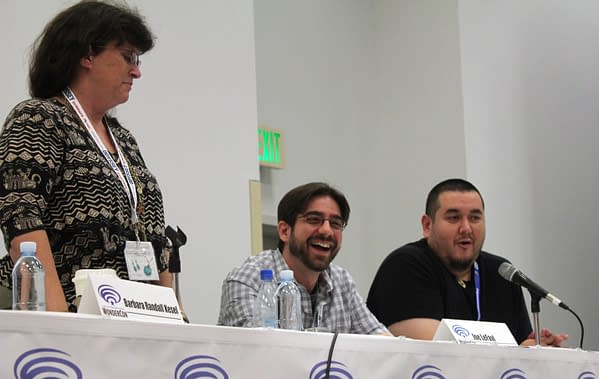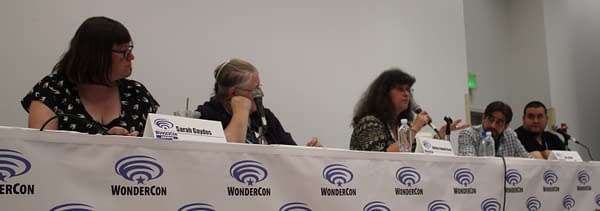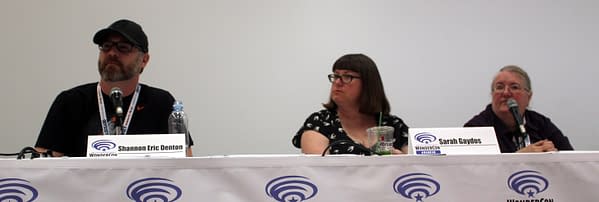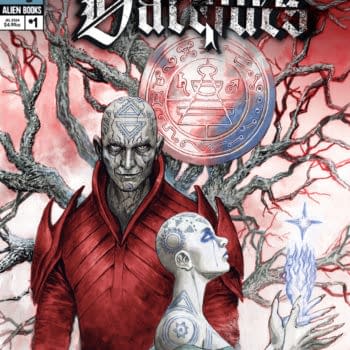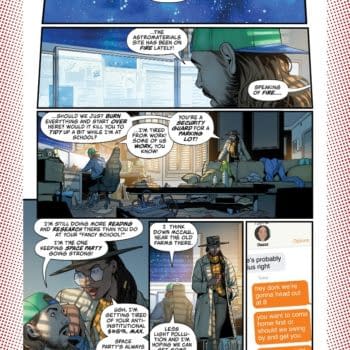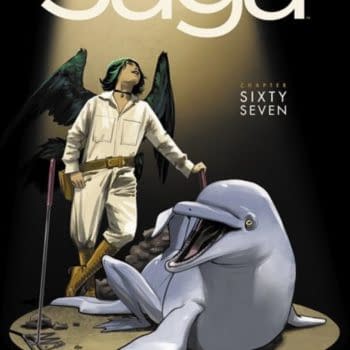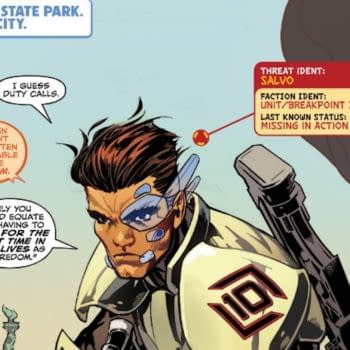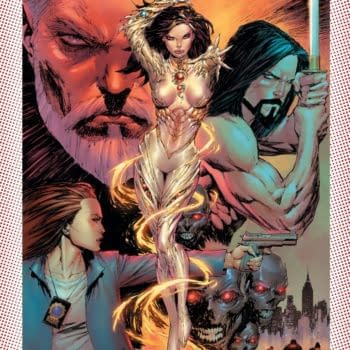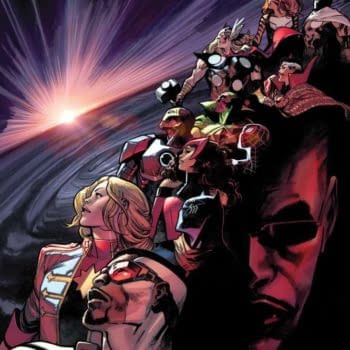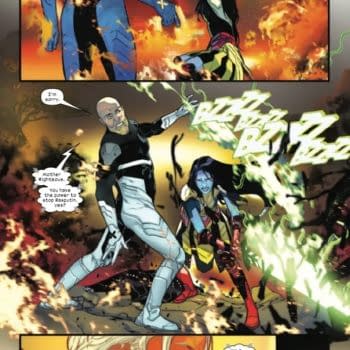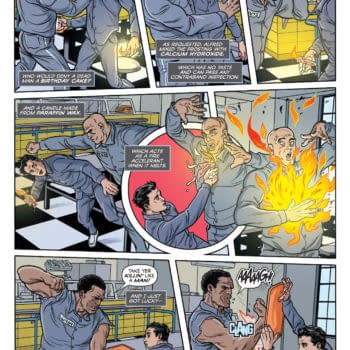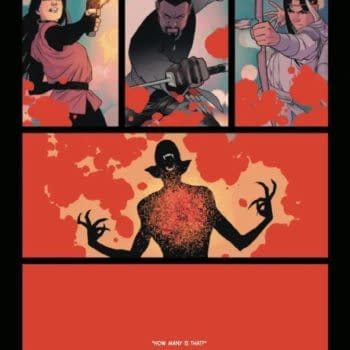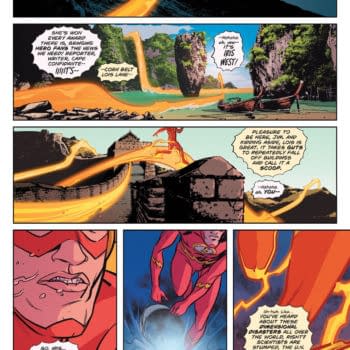Posted in: Comics | Tagged: Comics, editors, entertainment, wondercon
Wondercon '15 – Just What Do Editors Do? Veteran Editors Provide Answers
By Michele Brittany, West Coast Bleeding Cool Correspondent
Former DC Editor Barbara Randall Kesel assembled veteran editors from the industry to provide insight into what a comic book editor does. Joining Kesel were Shannon Eric Denton, Lion Forge Comics; Sarah Gaydos, IDW; Sarah Lucy Beach, Independent Editor/ScribblerWorks; Joe LeFavi, Quixotic Transmedia; and Vince Hernandez, Aspen Comics.
The job description for an editor is varied and dependent on many things. For instance, editors for smaller publishing companies will likely have a wide range of tasks however for larger publishing companies, an editor will have narrower focus because the company has team of editors whereas a smaller probably only has one or two people.
Editors assign projects to a creative team that they may have assembled. They have to be able to recognize a creative person's strengths and talents as well as their weaknesses, so the team the editor puts together will work together well and be able to work each person's strengths. The editor will then serve as a liaison between the creative team members, making sure that deadlines are met. There's an "art to editing," Kesel's states. And, there isn't training for editing, nor is any one background expected for editors.
Kesel asked the panelists to share their origin story. For example, Hernandez said he fell into editing when Michael Turner invited Hernandez to join his new company. Beach stated she had a natural talent for being able to identify continuity gaps in friends' writing that led to her being asked by an expanding group of people for assistance. Gaydos had graduated with a degree in English Literature and took a job as a receptionist at Wildstorm, figuring she would work her way up. She said it provided opportunities for her gain understanding of the various aspect of the editing process prior to becoming an editor herself.
Being about to see the big picture as well as being able to organize milestones and deadlines of multiple projects, typically up to a year in advance, is another facet expected of an editor. Hernandez said that editing involved "showing up and putting out fires" that come up with the creative team. However, the editor must also keep the team positive.
An editor's approach to a project will be impacted by whether the material is creator-owned or an IP. Denton explained that if the story is creator-owned, then there is more leeway and flexibility, so the editor is more often going to ask the creator if they intended to do text or art a certain way. With IPs, there are prescribed expectations and standards already in place that the creative team has to follow.
Kesel said there are avenues a person can take to become an editor. First, she joked about having a capacity for alcohol, but then added that it is for the purpose of networking opportunities – you know the after con parties, etc. She also suggested just becoming an editor by assembling a team and then start a project.
Speaking from experience, Beach suggested aspiring editors organize an anthology. This undertaking would require identifying a topic, doling out assignments, chronicling the the essays in an order that compliments the topic, and sticking to deadlines. LeFavi echoed Beach's idea. He added editors should consider webcomes, and he reminded the audience that developing talent and delivering on time was key to an editor's success. Gaydos suggested working on Kickstarters that need editors.
Hernandez mentioned a misconception that he encounters is that people think he's a copyeditor, which you'll find in the publishing business. However, he conceptualizes the position more like a producer because he may shape or support a particular vision, and he often develops ideas that he takes to the money people for consideration and investment.
The hour was coming to an end, so Kesel called for questions from the audience. Someone asked how the editor completes his or her editing process. Kesel said that she typically reads through the project multiple times, each time focusing on a different aspect of editing: continuity, grammar, etc. That said, she explained that editors are typically very involved in a project, so they will be well versed with the material at each juncture of the project.
In closing, the need for people skills and the ability to identify and implement an approach that is best suited for each team member is an incredible talent to have in one's editorial toolbox.
Michele Brittany is an independent popular culture scholar and semi-professional photographer and editor of James Bond and Popular Culture: Essays on the Influence of the Fictional Superspy (McFarland & Company). She regularly posts reviews and analysis on the spy/espionage genre on her blog, Spyfi & Superspies and can be followed at Twitter @mcbrittany2014.


